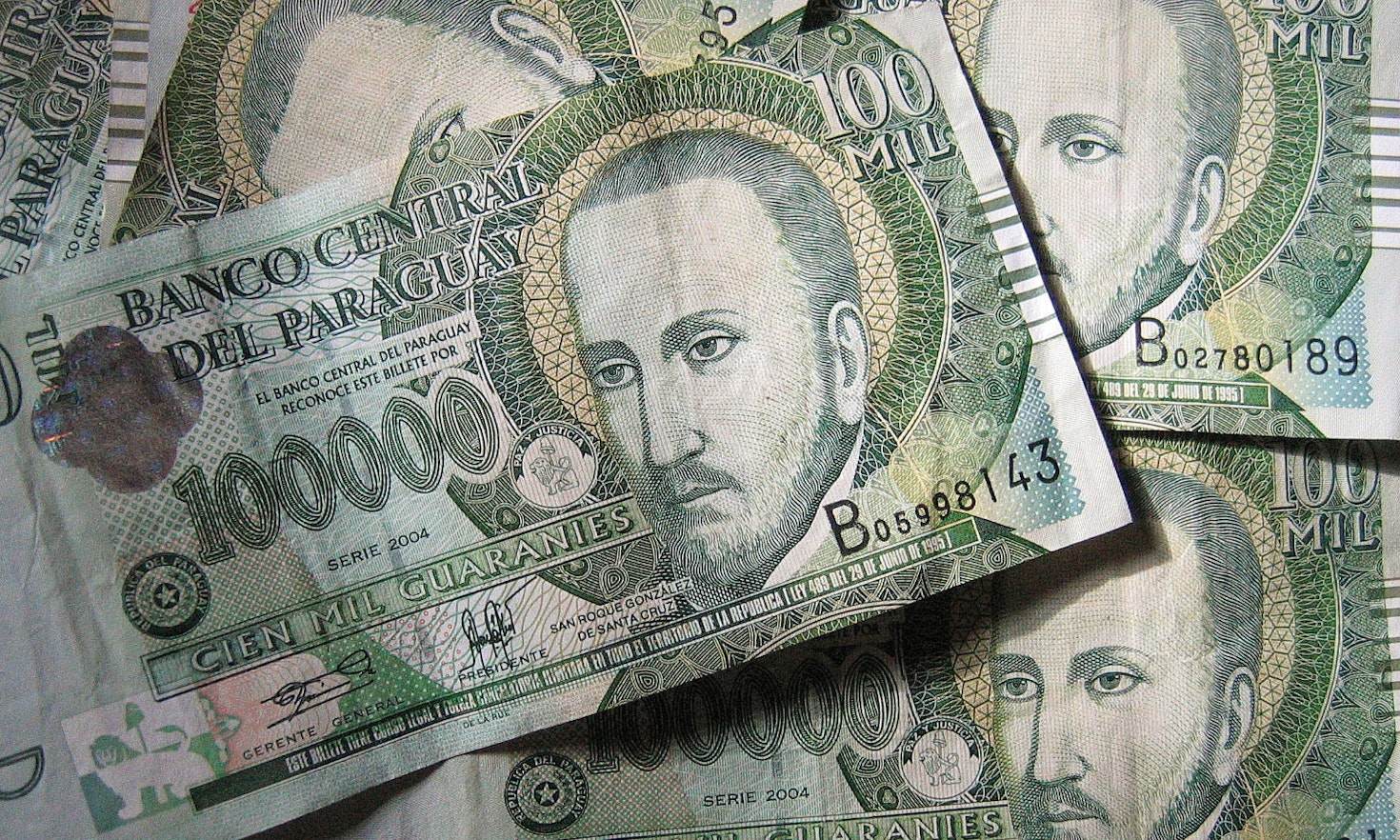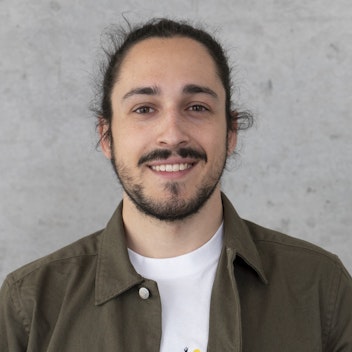Unpuzzling Paraguay: politics, drug trafficking, indigenist and land struggles

At the roots of Paraguay’s inequalities
Material misery is often conducive to miserable politics, just as miserable politics generates material misery. This is particularly true in some regions of the world, among them, South America where Paraguay lies at the heart. Paraguay, país pluricultural y bilingüe, substantially derives its mixed identity from its Castillian and Guaraní components where both Castillian and Guaraní are recognized as official languages. Unlike its neighbors, Guaraní, Paraguay’s main pre-Colombian language is truly spoken by the vast majority of its population, often as a first language.
Once it obtained its independence from the Spanish Empire in 1811, the Republic of Paraguay was founded. At war against the Triple Alliance (1864-1870) - formed by Argentina, Brazil, and Uruguay -, Paraguay lost two thirds of its population, and more than a third of its territory to Argentina and Brazil. The bloodiest war that has occurred in Latin America so far, forever changed Paraguay and determined its later history. What was left of its land was often sold to foreign companies, damaging small-scale farmers and Indigenous peoples as a result and forging an economic system based on large-scale farming. Due to these events and to the 35 years-long dictatorship of Alfredo Stroessner, Paraguay’s land distribution remains among the most unequal on earth, 2% of the population owns 85% of the land. Around 15% of arable lands belong to big terratenientes of Brazilian descent. They represent a segment of the over half a million (around 10 per cent of Paraguay’s population) Brazilians in Paraguay (sometimes referred to as Brasiguaios) who, heading from Southern Brazil (and largely of Italian, German, and Slavic descent), have settled in the Paraguayan departments which border Brazil since the 1950s, due to lower land prices1. Impoverished sin tierra (land-deprived peoples) and Indigenous peoples have found themselves caught between the structural inequalities of the Paraguayan society and the self-serving businesses of Brazilian and Mennonite landowners. These latter, numbering around 40.000, are an Anabaptist ethno-religious group that originated in Central Europe. After innumerous migrations, some communities installed themselves in Paraguay at the beginning of the 20th century to look for an haven to preserve their customs and their faith.
From opposition to armed struggle: the Ejercito del Pueblo Paraguayo
Throughout the 1980s, several groups opposing Stroessner’ regime grew stronger, and left-wing factions, popular among university and seminary students, wove their strategy. In the early 1990s, the Movimiento Patria Libre emerged, animated by the ideological syncretism made of Marxism-Leninism, nationalism, and the Liberation Theology. Within this milieu, a clandestine group was soon formed to carry out an armed struggle. In 2008, the Ejercito del Pueblo Paraguayo (EPP) was officially established2, with the aim of fighting in favor of land and Indigenous’ interests, against large-scale landowners and the establishment. Supposedly trained by the Colombian FARC (Fuerzas Armadas Revolucionarias de Colombia) and Chile’s FPMR (Frente Patriótico Manuel Rodríguez), the militia inaugurated its guerrilla activities in Central and Northeastern Paraguay, hiding its mobile campgrounds in the middle of the dense subtropical forests. On ideological grounds, the insurgent group, referring to the regency of José Gaspar Rodríguez de Francia (Supremo Dictador Perpetuo of Paraguay between 1814 and 1840), has tried to reproduce what Hugo Chávez did in Venezuela with Simón Bolívar, shaping a national brand of socialism based on a nationalist metanarrative built around one hero’s deeds. Since 2008, the EPP, as part of its insurgency, has been involved in hundreds of armed clashes and bombings, particularly devoting itself to kidnapping for ransom – of which the kidnapping of Óscar Denis, former Vice-President of Paraguay is a notable example. This activity, along with the impuestos revolutionarios (revolutionary extortion) imposed on landowners, has granted the EPP conspicuous financial resources. With a strength that oscillates from 10 to 100 up to a few hundred operatives or sympathizers3, the EPP has so far caused 74 deaths, including those of soldiers, policemen, and civilians. Due to their large economic possessions and their allogenous origin, Brazilian and Mennonite landowners have represented primary targets for EPP operations – as shown by the Brazilian TV program Repórter Record Investigação -. In this reportage, an excerpt of an EPP video communiqué unveils the intolerance towards those two groups: “our solidarity with all the peasants and Indigenous communities that daily suffer the abuses and the offences of Brazilian soya producers and Mennonites”. The guerrilla activities carried out by the EPP in the last few years have intensified particularly along the border between Paraguay and Brazil, overlapping with other turbulent issues such as the demands of landless and Indigenous peoples, intergroup tensions, and cross-border narcotrafficking.
Indigenous rights, Marxist guerrillas, and narcotrafficking: distinct but (inadvertently) intertwined
In South America, Paraguay is notoriously known for being a contraband and counterfeit hotspot. To the West, Brazil has seen the consolidation of its first criminal organization of global impact, the Primeiro Comando da Capital, the first Brazilian cartel. The US Department of Treasure has listed the PCC among the organized crime groups it has targeted with an improved set of sanctions, the first time for a Brazilian criminal organization. The PCC, which operates one of the world’s largest cocaine rings, has gained its place in the world’s network of illicit drug trade, along with Calabrian ‘Ndrangheta.4 In this chain, Brazil simply represents a transitional ring, while the drug production itself takes place more towards the east, in Bolivia and Paraguay, and in the Andean-Amazonian region. In light of its size, this illicit economic chain, called Narcosul (Narco-south), heavily impacts on the socio-cultural, political, and territorial frictions that already exist in the region. Indeed, by operating in a clandestine and illegal state, the EPP and the PCC have inevitably needed to find a mutually advantageous modus vivendi, if not an alliance; at least according to the law enforcement authorities in Paraguay. Others extend the connections between the EPP and Brazilian organized crime to include Brazil’s oldest criminal group, the Comando Vermelho. To better understand the nature of such delicate affair, some analysts report that while the EPP tolerates and secures the presence of drug cultivation on “its” territory, Brazil’s cartels provide them with weapons. Police authorities have been stating the same, the PCC and the EPP, operating in the same zones, se estaban cuidando los unos con los otros (are taking care of eachother). Or, as Ultima Hora reports - one of the biggest newspapers in Paraguay - reports, those groups se cuidan entre ellos, to the point that the EPP may represent the armed wing of the narcos. Just as occurred with the FARC in Colombia, the accusations of narcoterrorism against the EPP have been growing consistently. Nonetheless factual proof remains scant and allegations only circumstantial. The EPP, since its inception, has denied its involvement in drug trafficking, while those accusations, as declared by Carmen Villalba one of the EPP’s leaders, are forged by the collusion between the oligarchy and corporate media.
In truth, while a historical overview of the insurgency led by left-wing guerrilla groups5 in Paraguay would individuate its genesis in the centuries-long unequal distribution of resources and the marginalization of rural and Indigenous populations, the emphasis of analysts should probably be put on the overall political reality of Paraguay first. A country on the verge of becoming a narco-state, where the synergy between politics and illicit activities precedes the surge of revolutionary armed groups.
A thoughtful reflection
In the midst of the chaotic occurrences mentioned so far, impoverished, and frightened Paraguayans are the victims. Representatives of socially-committed segments of the Concepción diocese - that segment of the Catholic Church that view the peasants’ and Indigenous’ struggles through the lens of evangelical socialism – have a different perspective. The Fuerza de Tarea Conjunta (FTC), the joint task force of the Paraguayan police and the military tasked with repressing the EPP, has at times been accused of intimidating rural workers and Indigenous peoples on the allegation of being related to the EPP guerrillas. The militarization of the region is therefore seen as harmful against the legitimate and peaceful claims of ordinary peasants and Indigenous peoples, while abuses and excesses of the FTC have already been reported6.
Most of the time, the Brazilian agrobusiness– along with the prosperous enterprises of the Mennonites - is considered as non-conducive to the collective good of the Paraguayan society. Rather, it has seemingly served the manifold expansionist interests of Brazil on its surroundings, something that even evokes a sort of Brazilian imperialism, or at least of sub-imperialist behavior. As Uruguay’s former President Pepe Mujica recounts: “the imperial attitude of Brazil may be a consequence of its history”, and the historical strategic enlargement of its borders at the expense of neighbors, has “surely shaped a cultural view of such a type [imperialist]”. This same fear, from the perspective of Paraguay, was raised before the Brazilian hegemonic strategy in the Brazil-Paraguay shared administration of the Itaipu hydroelectric dam7. Worries of the same kind have also arisen in several other South American states. On the other hand, the intolerance towards Brazilians in Paraguay does clash with their real socioeconomic profile. In fact, if it is true that a few Brazilian landowners run a lucrative agrobusiness, many Brasiguaios are rather poor, unspecialized or unoccupied workers, or even landless peasants. Many of them do even partake in rural workers movements along with many Paraguayan campesinos; and within the Movimento dos Trabalhadores Rurais Sem Terra in Paraná and Mato Grosso do Sul in Brazil.
Against this convoluted backdrop, where social injustices, ethnocultural pluralism, terrorism and trafficking, and geopolitics intermingle, it seems more than desirable to pursue the task of disentangling the multifaceted complexity of an apparently uninfluential region which - from a Eurocentric perspective - almost imperceptibly impacts local and world affairs.

Citation
This content is licensed under a Creative Commons Attribution 4.0 International license except for third-party materials or where otherwise noted.







